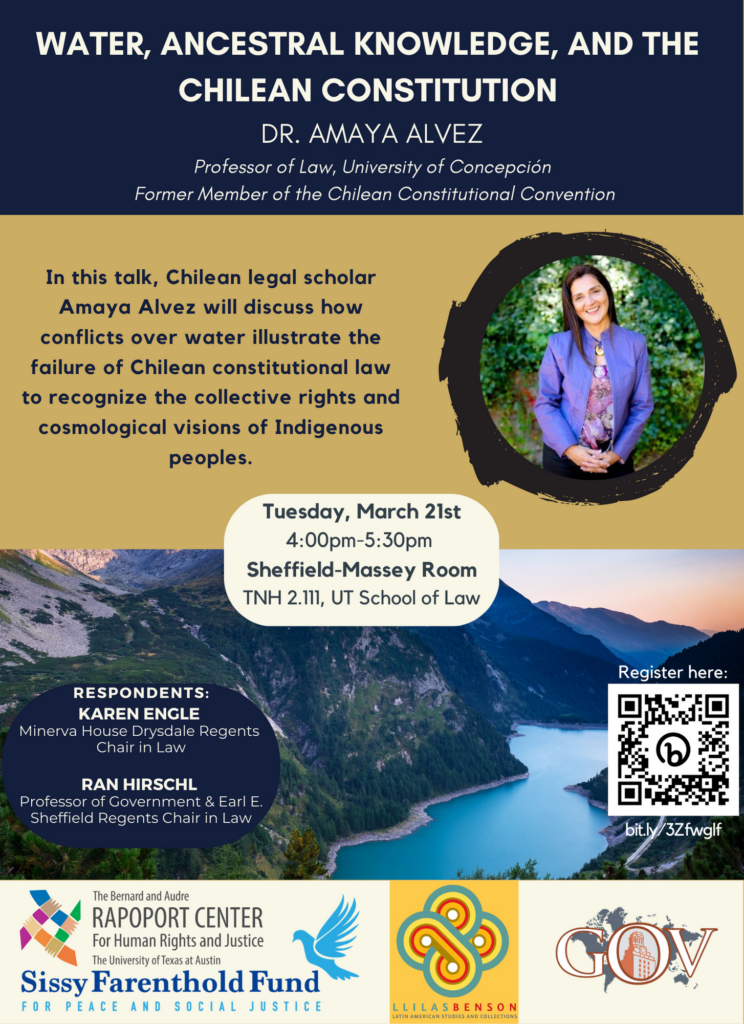
Dr. Amaya Alvez: Water, Ancestral Knowledge, and the Chilean Constitution
In this talk, Chilean legal scholar Amaya Alvez, who served as an elected member of the 2021-22 Chilean Constitutional Convention, argued that Chile’s Constitutions have long enabled natural resource governance that perpetuates (neo)colonial dispossession and makes Indigenous peoples invisible. Focusing on water, she demonstrates that Chilean constitutional law fails not only to recognize collective rights that are guaranteed under international law but to take seriously the cosmological vision of water held by Indigenous peoples. Chile’s 1980 Constitution, for instance, preserves the European, colonizing, and standardizing view of waters in Mapuche territory. Alvez illustrates the ongoing coloniality of norms, knowledge, and of livelihoods through examination of competing rationalities that emerge in conflicts between Indigenous communities and supporters of extractive projects.
Dr. Amaya Alvez is a Professor of Law at the University of Concepción in Concepción, Chile. Alvez is a former Member of the Chilean Constitutional Convention, where she developed a constitutional approach to the decentralization of Chile. Alvez is an activist and human rights defender and is an active member of multiple organizations promoting environmental, women’s, and Indigenous rights. Alvez’s research focuses on Constitutional Law, Human Rights, water regulation and Indigenous Peoples.
Respondents
- Ran Hirschl Professor of Government & Earl E. Sheffield Regents Chair in Law
- Guillermo Pérez Government
Supporters
UT Department of Government
Teresa Lozano Long Institute of Latin American Studies
